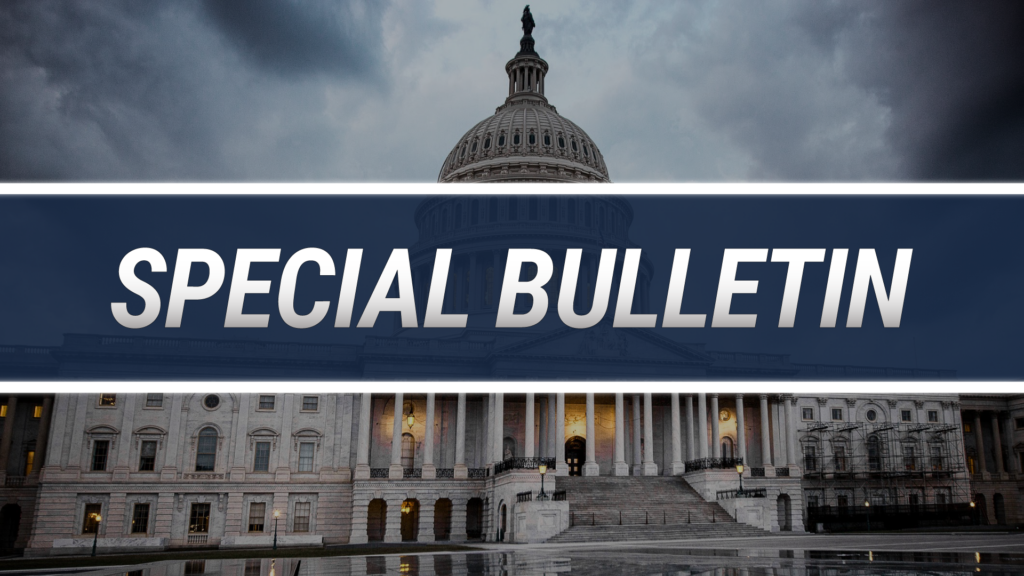
CRUSH, A DME Moratorium, OIG Audits Resume, and the PEPPER
Picture this: You are driving through an area you don’t know well. It is a cold day. You stop to get gas. You fill the

Costs for testing are being waived as diagnostic tests proceed.
EDITOR’S NOTE: The World Health Organization (WHO) has declared that the coronavirus is now a pandemic.
With the novel coronavirus (COVID-19) outbreak intensifying across the country and large-scale public gatherings of all types being postponed or canceled en masse, federal officials and insurers are scrambling to eliminate financial barriers to testing and care, marking part of a broader effort to ensure that the nation’s healthcare infrastructure does not become overwhelmed.
The Centers for Medicare & Medicaid Services (CMS) announced Tuesday that many leading insurance companies and their industry associations are now indicating that they will be treating COVID-19 diagnostic tests as covered benefits, and will be waiving cost-sharing that would otherwise. The agency also pledged to provide more flexibility to Medicare Advantage and Part D plans, “to ensure they have the tools they need to provide seniors with the best coverage.”
As part of a flurry of related activity, CMS published a memorandum to Medicare Advantage (MA) and Part D health and prescription drug plans, informing them of the flexibilities they have to provide healthcare coverage to Medicare beneficiaries for COVID-19 testing, treatments, and prevention.
More than 1,000 people have now tested positive for the virus in more than 30 states, with pockets of infection reflecting substantial ease of spread.
“The President directed CMS to make sure Medicare Advantage beneficiaries have access to the healthcare services they need during this time,” CMS Administrator Seema Verma said in a statement. “Today we announced guidance to Medicare Advantage and Part D plans to remove barriers that could prevent or delay beneficiaries from receiving care. Medicare beneficiaries are at the greatest risk of serious illness due to COVID-19, and CMS will continue doing everything in our power to protect them.”
In the aforementioned memorandum, CMS outlined the flexibilities MA and Part D plans have to waive certain requirements to help prevent the spread of the virus; specifically, the relief involves:
The changes mark part of a broader effort on the part of the newly created White House Coronavirus Task Force, which has publicly announced an intention to ensure that all Americans – particularly those at high risk of complications from the COVID-19 virus – have access to benefits while helping to contain the spread of disease.
To view CMS’s memorandum for MA and Part D plans, go online to https://www.cms.gov/files/document/hpms-memo-covid-information-plans.pdf.
CMS has announced changes in policy to address the coronavirus outbreak several times per week recently, including half a dozen times since the start of the month alone:
On March 9, CMS delivered guidance on the screening, treatment, and transfer procedures healthcare workers must follow when interacting with patients to prevent the spread of COVID-19 in a hospice setting. CMS also issued additional guidance specific to nursing homes to help control and prevent the spread of the virus: https://www.cms.gov/newsroom/press-releases/cms-issues-clear-actionable-guidance-providers-about-covid-19-virus
Also on March 9, CMS issued a press release highlighting the telehealth benefits in the agency’s Medicare program for use by patients and providers: https://www.cms.gov/newsroom/press-releases/telehealth-benefits-medicare-are-lifeline-patients-during-coronavirus-outbreak
Additionally, on March 9, CMS published guidance to hospitals with emergency departments (EDs) on patient screening, treatment, and transfer requirements to prevent the spread of infectious disease and illness, including COVID-19, ordering that Medicare-participating hospitals follow both Centers for Disease Control and Prevention (CDC) guidance for infection control and Emergency Medical Treatment and Labor Act (EMTALA) requirements: https://www.cms.gov/newsroom/press-releases/cms-issues-call-action-hospital-emergency-departments-screen-patients-coronavirus
On March 6, CMS issued frequently asked questions and answers (FAQs) for healthcare providers regarding Medicare payment for laboratory test and other services related to the outbreak: https://www.cms.gov/newsroom/press-releases/covid-19-response-news-alert-cms-issues-frequently-asked-questions-assist-medicare-providers
On March 5, CMS issued a second Healthcare Common Procedure Coding System (HCPCS) code for certain COVID-19 laboratory tests, in addition to three fact sheets about coverage and benefits for medical services related to COVID-19 for CMS programs: https://www.cms.gov/newsroom/press-releases/cms-develops-additional-code-coronavirus-lab-tests
On March 4, CMS issued a call to action to healthcare providers nationwide and offered important guidance to help State Survey Agencies and Accrediting Organizations prioritize their inspections of healthcare: https://www.cms.gov/newsroom/press-releases/cms-announces-actions-address-spread-coronavirus


Picture this: You are driving through an area you don’t know well. It is a cold day. You stop to get gas. You fill the

Federal health officials have announced the launch of the Comprehensive Regulations to Uncover Suspicious Healthcare (CRUSH) initiative. The announcement was framed as a decisive step
Please log in to your account to comment on this article.

Sepsis sequencing continues to challenge even experienced coding and CDI professionals, with evolving guidelines, documentation gaps, and payer scrutiny driving denials and data inconsistencies. In this webcast, Payal Sinha, MBA, RHIA, CCDS, CDIP, CCS, CCS-P, CCDS-O, CRC, CRCR, provides clear guideline-based strategies to accurately code sepsis, severe sepsis, and septic shock, assign POA indicators, clarify the relationship between infection and organ dysfunction, and align documentation across teams. Attendees will gain practical tools to strengthen audit defensibility, improve first-pass accuracy, support appeal success, reduce denials, and ensure accurate quality reporting, empowering organizations to achieve consistent, compliant sepsis coding outcomes.

Expert presenters Kathy Pride, RHIT, CPC, CCS-P, CPMA, and Brandi Russell, RHIA, CCS, COC, CPMA, break down complex fracture care coding rules, walk through correct modifier application (-25, -57, 54, 55), and clarify sequencing for initial and subsequent encounters. Attendees will gain the practical knowledge needed to submit clean claims, ensure compliance, and stay one step ahead of payer audits in 2026.

Accurately determining the principal diagnosis is critical for compliant billing, appropriate reimbursement, and valid quality reporting — yet it remains one of the most subjective and error-prone areas in inpatient coding. In this expert-led session, Cheryl Ericson, RN, MS, CCDS, CDIP, demystifies the complexities of principal diagnosis assignment, bridging the gap between coding rules and clinical reality. Learn how to strengthen your organization’s coding accuracy, reduce denials, and ensure your documentation supports true medical necessity.

Denials continue to delay reimbursement, increase administrative burden, and threaten financial stability across healthcare organizations. This essential webcast tackles the root causes—rising payer scrutiny, fragmented workflows, inconsistent documentation, and underused analytics—and offers proven, data-driven strategies to prevent and overturn denials. Attendees will gain practical tools to strengthen documentation and coding accuracy, engage clinicians effectively, and leverage predictive analytics and AI to identify risks before they impact revenue. Through real-world case examples and actionable guidance, this session empowers coding, CDI, and revenue cycle professionals to shift from reactive appeals to proactive denial prevention and revenue protection.

In this timely session, Stacey Shillito, CDIP, CPMA, CCS, CCS-P, CPEDC, COPC, breaks down the complexities of Medical Decision Making (MDM) documentation so providers can confidently capture the true complexity of their care. Attendees will learn practical, efficient strategies to ensure documentation aligns with current E/M guidelines, supports accurate coding, and reduces audit risk, all without adding to charting time.

Join Ronald Hirsch, MD, FACP, CHCQM for The PEPPER Returns – Risk and Opportunity at Your Fingertips, a practical webcast that demystifies the PEPPER and shows you how to turn complex claims data into actionable insights. Dr. Hirsch will explain how to interpret key measures, identify compliance risks, uncover missed revenue opportunities, and understand new updates in the PEPPER, all to help your organization stay ahead of audits and use this powerful data proactively.

Stay ahead of the 2026-2027 audit surge with “Top 10 Audit Targets for 2026-2027 for Hospitals & Physicians: Protect Your Revenue,” a high-impact webcast led by Michael Calahan, PA, MBA. This concise session gives hospitals and physicians clear insight into the most likely federal audit targets, such as E/M services, split/shared and critical care, observation and admissions, device credits, and Two-Midnight Rule changes, and shows how to tighten documentation, coding, and internal processes to reduce denials, recoupments, and penalties. Attendees walk away with practical best practices to protect revenue, strengthen compliance, and better prepare their teams for inevitable audits.

As AI reshapes healthcare compliance, the risk of biased outputs and opaque decision-making grows. This webcast, led by Frank Cohen, delivers a practical Four-Pillar Governance Framework—Transparency, Accountability, Fairness, and Explainability—to help you govern AI-driven claim auditing with confidence. Learn how to identify and mitigate bias, implement robust human oversight, and document defensible AI review processes that regulators and auditors will accept. Discover concrete remedies, from rotation protocols to uncertainty scoring, and actionable steps to evaluate vendors before contracts are signed. In a regulatory landscape that moves faster than ever, gain the tools to stay compliant, defend your processes, and reduce liability while maintaining operational effectiveness.
Happy National Doctor’s Day! Learn how to get a complimentary webcast on ‘Decoding Social Admissions’ as a token of our heartfelt appreciation! Click here to learn more →
CYBER WEEK IS HERE! Don’t miss your chance to get 20% off now until Dec. 1 with code CYBER25
CYBER WEEK IS HERE! Don’t miss your chance to get 20% off now until Dec. 2 with code CYBER24